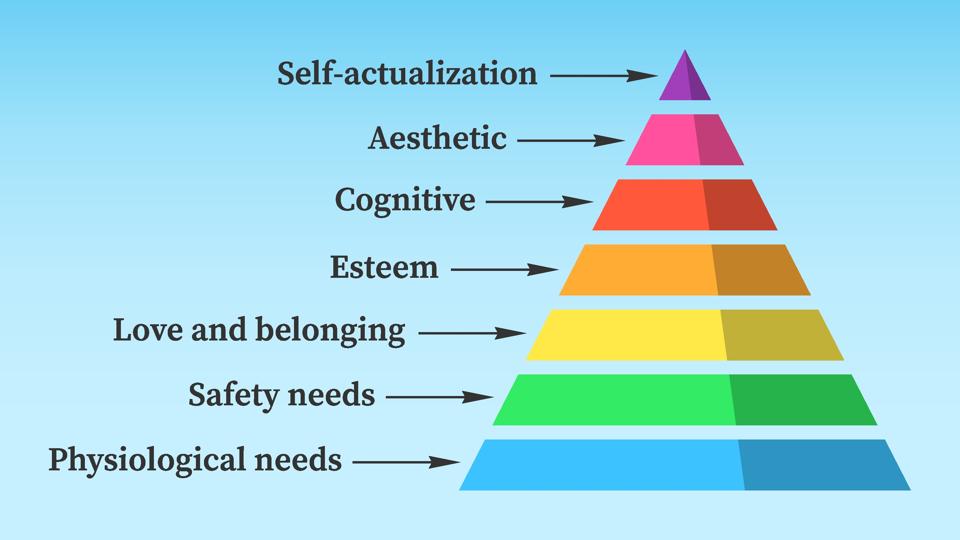Let the economists, financial analysts, political pundits, and lobbyists argue, debate, and bloviate all they want about Trump’s tariffs; they’ll neither satisfactorily explain them nor will they win their arguments about them.
That’s because, as long as they stay within the arena of economics, they won’t be able to see outside the proverbial box – because that box was built using their own constructs. It’s subjective with no chance of achieving objectivity. The problem is, they don’t see the world the way it is; they see the world the way they are. We all do, actually. The answer is hidden not in the economics calculations. It’s elsewhere.
American creativity will suffer.
Looking beyond the immediate and measurable increase in the cost of eggs and cars and just about everything else, the more long-term and certainly more abstract element of the upheaval caused by the Trump tariffs is American creativity. In virtually every field, what contributed to American success more than anything else over our history was American creativity, and in this essay, I will connect a few dots for you to prove that it is under attack – by our very own leader, no less. You can always recoup manufacturing advantage or financial advantage or almost any other. But when you give away creative advantage, you don’t get it back.
An Outsider’s Look at the Economy
When you’re done listening to the economists, industrialists, and financiers – with their MBAs, PhDs, and prizes – please give my theory some thought. I come from the world of Psychology, and I have a particularly strong commitment to the humanistic school of psychology, that branch developed in the 1950s and 1960s by Abraham Maslow (1908-1970), who did more to change the way we think about human motivation than anyone else ever did.
Over the course of 25 years, I provided consulting and leadership advice to corporations, nonprofits, and educational institutions spanning 25 industries, much of which rested on Maslow’s Hierarchy of Needs. Maslow, of course, built it to explain human motivation and subsequent behavior; I’ve taken it a step further, positing that it just as well explains organizational motivation, success, and failure. Let’s start with a simple explanation from Psych 101.
Maslow’s Hierarchy of Needs
Maslow explained that as humans evolve, we identify and meet ever-elevating needs, and move onto one after another only when we are confident that we’ve met – and then sustain – the current one. Please refer to the graphic at the head of this column.
So for instance, in the extreme, if we are still struggling to feed, clothe, or house ourselves (physiological needs), we are in no position to pursue and attempt to meet our cognitive (knowledge, education, degrees) or aesthetic (beauty, symmetry) needs. We must meet our lower-level needs – in order – before we can think about our higher-level needs. That’s what’s hierarchical about this.
Relating the Psychology to the Economics
I submit that organizations evolve just like individuals do, and that until the basic needs are met and secured (meeting payroll, achieving market competitiveness), the organization cannot do things like sponsoring a 5K charity run, offer tuition assistance, or build a new, green headquarters. The organizational hierarchy directly parallels that of the individual.
Progressing and Regressing
Just as we progress up the hierarchy, we can regress. This can happen for many reasons: poor decisions, catastrophic events, failure to stay current, and so on. Here’s where the creativity issue becomes an advantage or a liability. It is only when we have met our lower-level needs that we can afford to attend to our higher ones. And that’s where creativity thrives. When we don’t have to worry about food, clothing, and shelter, we can think creatively about telescopes, nanorobots, AI, and vertical farming. We no longer must worry about ourselves only. We can think about being on a team producing fusion energy systems that are still 20 or 30 years away. Both the individual and the organization face the same hinge points.
Unquestionable hit to creativity
No doubt, there have been over the past week far more regressions than progressions, When 60% of Americans live paycheck to paycheck, and when the stock market loses approximately 4,300 points (roughly 10%), there will be a whole lot less future-oriented creativity, creative thinking, and innovation going on, and far more primal behavior protecting sheer subsistence.
And when so much of your hegemony depends on it, that damage will not only be severe, it will likely be irreversible to some extent or another.
Creativity, Change, and the 21st Century Leader
In 2006, in one of my most creative moments, I saw beyond the graduate leadership course I had been teaching for three years, and created a new, wildly successful and popular course called Creativity, Change, and the 21st Century Leader. I taught it for 12 years until I retired from the classroom. The syllabus began with this statement of purpose:
“Leaders of the 21st century can no longer deal just with change; they must be able to create, discover, and invent new ways of thinking, new ways of dealing with greater changes yet to come, and new ways of building organizations.”
And now there are tariffs, too.

